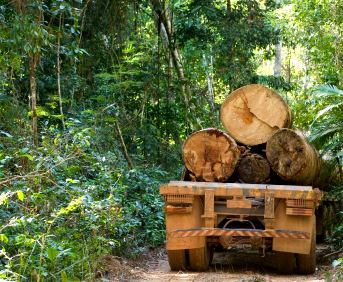Forest stop could save millions

Professor Andrew Macintosh from the Australian National University says native forests in the state's south-east would be better left untouched.
The New South Wales Government recently announced a target to reduce the state’s emissions by 50 per cent by 2030 on 2005 levels. Meeting this target while maintaining prosperity requires the cheapest sources of abatement.
Prof Macintosh says there is an opportunity to expand the role of forests in NSW’s climate strategy by stopping logging in state forests.
His new report looks at the climate and economic outcomes of this strategy, based on a case study in the southern forests of NSW, covering the Southern and Eden Regional Forest Agreement (RFA) areas.
Based on conservative assumptions, the study found stopping native forestry in the Southern and Eden RFA areas would produce a net economic benefit to the state of approximately $60 million, while also reducing net greenhouse gas emissions by almost 1 million tonnes per year over the period 2022-2041.
“Given the nature of the products that they produce, there's likely to be similar dynamics, and also benefits, from stopping harvesting, particularly on the greenhouse gas emissions side,” Prof Macintosh says.
He suggested more subsidies and ‘patient capital’ are needed for investing in new hardwood plantations.
“It's worthwhile looking at trying to promote another way of investment in plantations to help substitute out of native forestry and to provide the incentives people need,” he said.
The report is accessible in PDF form, here.








 Print
Print